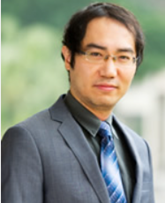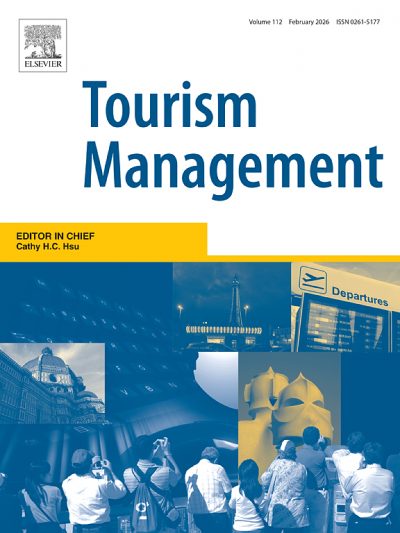
Prof. Anthony Ip Kin WONG

Tourism Management
Prof. Anthony Ip Kin WONG, Professor in Department of Integrated Resort and Tourism Management at the Faculty of Business Administration and member of the Smart Tourism Team at APAEM, published an article entitled “Mindfulness oasis: Cultivating mental wellness through Zen meditation retreats for tourists with mental and psychological vulnerabilities” in collaboration with Dr. YiTing ZHOU and Dr. Zhiwei (CJ) LIN in Tourism Management (ABS4).
Abstract:
This research explores Zen retreats through the psychological transformation perspective, focusing on the general population’s broader mental vulnerabilities. Using a multimethod qualitative approach, including online traveler reflections and communications, onsite observations, and interviews, it reveals a multifactorial interaction framework in which tourists seek personal betterment, connections with kindred spirits, and sacred experiences, leading to inner transformation via Zen masters and restorative environments. Findings transcend the approach of positive psychology alone for understanding psychological transformation, demonstrating that Zen retreats simultaneously reduce vulnerabilities and enhance well-being. This inquiry introduces a temporal logic linking mental vulnerabilities, Zen practices, and therapeutic methods to provide empirical evidence for therapy authenticity. It further reveals the alignment between Zen tourism’s restorative methods and mainstream psychotherapy techniques, thus grounding experiential narratives in established psychological theories. Finally, it contributes to individual and societal benefits, laying the foundation for using Zen retreats as a potential social healthcare approach.
For details: https://doi.org/10.1016/j.tourman.2025.105237
Prof. WONG also published an article entitled “Ethical perceptions of generative AI use and employee work outcomes: Role of moral rumination and AI-supported autonomy” in collaboration with Dr. Jing Yi BAI, Prof. Tzung Cheng T.C. HUAN, Prof. Fevzi OKUMUS, and Prof. Aliana Man Wai LEONG in Tourism Management (ABS4).
Abstract:
Despite the numerous ethical challenges in relation to the use of generative artificial intelligence (GAI), our understanding of whether ethical perceptions of using GAI influence employees’ work-related outcomes remains limited. Drawing on cognitive rumination theory, we claim that moral rumination mediates the relationship between ethical perceptions of GAI use and employee work-related outcomes. AI-supported autonomy (AI-SA) moderates this relationship. We use two independent studies to test the proposed model: an experiment (Study 1) and a field survey study (Study 2). The research findings suggest that employees’ ethical perceptions of GAI use lead to moral rumination, which impairs their service innovative behavior and ethical voice behavior. Moreover, the negative mediating effects of moral rumination can be strengthened when employees have lower levels of AI-SA. Our research advances the understanding of whether and how GAI use generates unintended consequences through an ethical pathway.
For details: https://doi.org/10.1016/j.tourman.2025.105242
Source: Faculty of Business Administration, University of Macau

